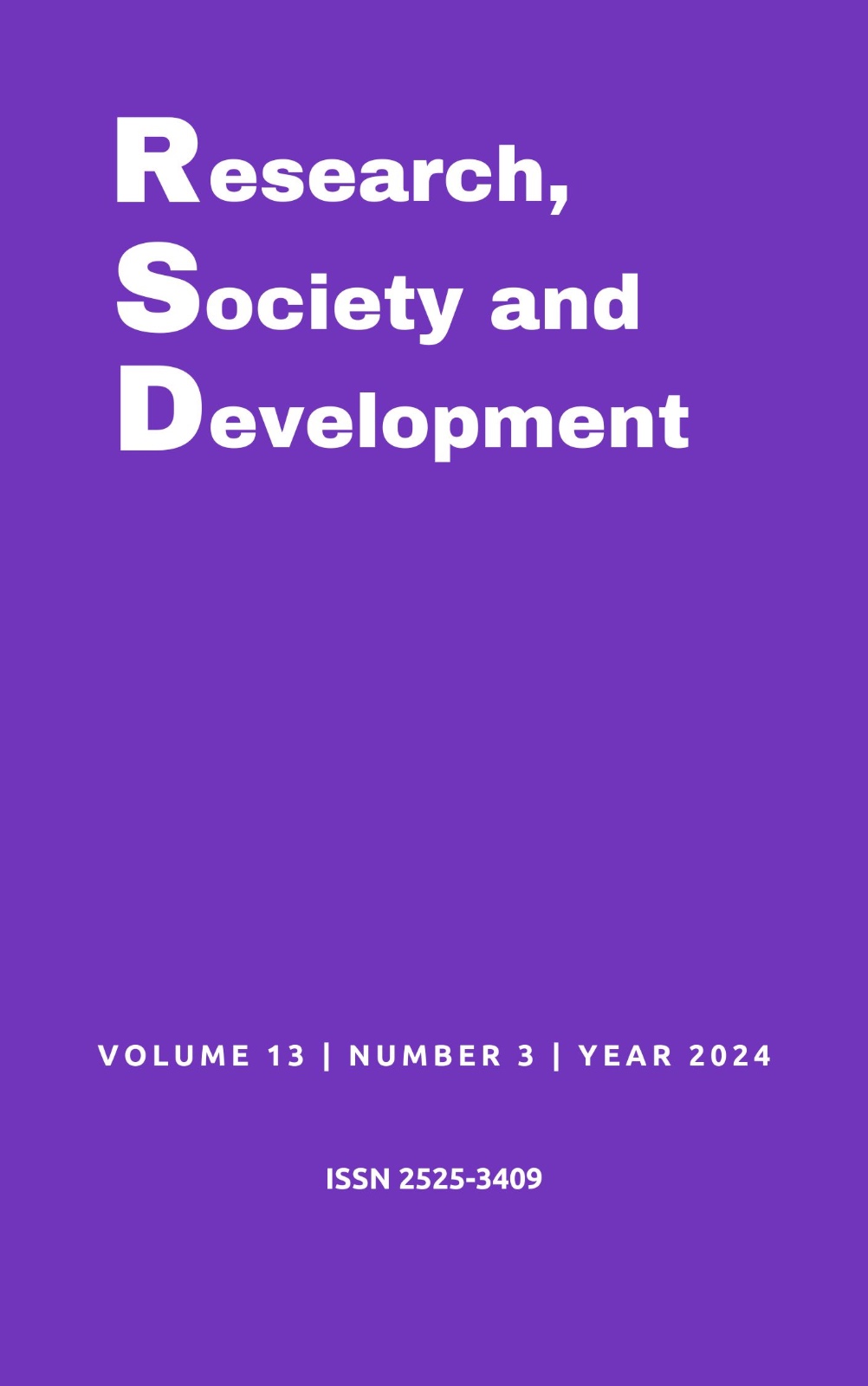Use of active recall among medical students: A cross-sectional study
DOI:
https://doi.org/10.33448/rsd-v13i3.45200Keywords:
Education, medical, Learning, Students, medical, Teaching, Health teaching.Abstract
Introduction: Medical knowledge is constantly evolving. The retention of information, aiming for long-term maintenance, is essential, but many are not aware of or have difficulties in applying efficient study techniques. The practice of active retrieval can improve learning, but students often do not use it effectively. Objective: This study aims to evaluate the knowledge and use of active study techniques by medical students at a University Center in Ceará. Material and methods: A quantitative observational cross-sectional study was conducted from March to June 2023, with students from the first four years of a Medicine course at a University Center in the state of Ceará. In addition to demographic data, there were questions related to the use of active study methods and their perceived efficiency. The project was approved by the Research Ethics Committee of the Institution. Results: 379 responses were analyzed. Most were in the fifth to seventh semesters (53.8%). Approximately 72% were familiar with active study methods, but 51.5% had not received guidance on the subject during their graduation. The most and least used study techniques were identified, and students preferred to use passive study techniques. Conclusion: There is a disconnect between the use of active and passive study techniques. Many still adopt less efficient approaches (passive techniques) and lack knowledge about active methods. Understanding active retrieval in medical education could allow for greater retention of knowledge by students.
References
Augustin, M. (2014). How to learn effectively in medical school: test yourself, learn actively, and repeat in intervals. The Yale journal of biology and medicine, 87(2), 207.
Bauler, T. J., Sheakley, M. L., & Ho, A. (2020). Use of the team-based learning readiness assessment test as a low-stakes weekly summative assessment to promote spaced and retrieval-based learning. Medical Science Educator, 30, 605-608.
Bjork, R. A., Dunlosky, J., & Kornell, N. (2013). Self-regulated learning: Beliefs, techniques, and illusions. Annual review of psychology, 64, 417-444.
Deng, F., Gluckstein, J. A., & Larsen, D. P. (2015). Student-directed retrieval practice is a predictor of medical licensing examination performance. Perspectives on medical education, 4, 308-313.
Donker, S. C., Vorstenbosch, M. A., Gerhardus, M. J., & Thijssen, D. H. (2022). Retrieval practice and spaced learning: preventing loss of knowledge in Dutch medical sciences students in an ecologically valid setting. BMC Medical Education, 22(1), 65.
Dunlosky, J., Rawson, K. A., Marsh, E. J., Nathan, M. J., & Willingham, D. T. (2013). Improving students’ learning with effective learning techniques: Promising directions from cognitive and educational psychology. Psychological Science in the Public interest, 14(1), 4-58.
Fiorella, L., & Mayer, R. E. (2016). Eight ways to promote generative learning. Educational Psychology Review, 28, 717-741.
Ghanbari, S., Haghani, F., & Akbarfahimi, M. (2019). Practical points for brain-friendly medical and health sciences teaching. Journal of education and health promotion, 8.
Karpicke, J. D. (2012). Retrieval-based learning: Active retrieval promotes meaningful learning. Current Directions in Psychological Science, 21(3), 157-163.
Karpicke, J. D., & Blunt, J. R. (2011). Retrieval practice produces more learning than elaborative studying with concept mapping. Science, 331(6018), 772-775.
Kornell, N., & Bjork, R. A. (2007). The promise and perils of self-regulated study. Psychonomic bulletin & review, 14(2), 219-224.
McCabe, J. (2011). Metacognitive awareness of learning strategies in undergraduates. Memory & cognition, 39, 462-476.
Niroula, S., & Niroula, A. (2020). Effective way of studying and learning in medical school. JNMA: Journal of the Nepal Medical Association, 58(231), 954.
Radcliffe, C., & Lester, H. (2003). Perceived stress during undergraduate medical training: a qualitative study. Medical education, 37(1), 32-38.
Rea, S. D., Wang, L., Muenks, K., & Yan, V. X. (2022). Students can (mostly) recognize effective learning, so why do they not do it? Journal of Intelligence, 10(4), 127.
Roediger III, H. L., & Karpicke, J. D. (2006). The power of testing memory: Basic research and implications for educational practice. Perspectives on psychological science, 1(3), 181-210.
Roediger III, H. L., Putnam, A. L., & Smith, M. A. (2011). Ten benefits of testing and their applications to educational practice. Psychology of learning and motivation, 55, 1-36.
Siler, J., & Benjamin, A. S. (2020). Long-term inference and memory following retrieval practice. Memory & Cognition, 48, 645-654.
Soderstrom, N. C., & Bjork, R. A. (2015). Learning versus performance: An integrative review. Perspectives on Psychological Science, 10(2), 176-199.
Wollstein, Y., & Jabbour, N. (2022). Spaced Effect Learning and Blunting the Forgetfulness Curve. Ear, Nose & Throat Journal, 101(9_suppl), 42S-46S.
Downloads
Published
Issue
Section
License
Copyright (c) 2024 Caio César Otôni Espíndola Rocha; Eulália Maria Loureiro Maia Campelo; Lucas Apoliano Gomes Albuquerque; Giovanna Lacorte Gomes; Letícia Passos Chaves Capibaribe Barros; Raquel Autran Coelho Peixoto

This work is licensed under a Creative Commons Attribution 4.0 International License.
Authors who publish with this journal agree to the following terms:
1) Authors retain copyright and grant the journal right of first publication with the work simultaneously licensed under a Creative Commons Attribution License that allows others to share the work with an acknowledgement of the work's authorship and initial publication in this journal.
2) Authors are able to enter into separate, additional contractual arrangements for the non-exclusive distribution of the journal's published version of the work (e.g., post it to an institutional repository or publish it in a book), with an acknowledgement of its initial publication in this journal.
3) Authors are permitted and encouraged to post their work online (e.g., in institutional repositories or on their website) prior to and during the submission process, as it can lead to productive exchanges, as well as earlier and greater citation of published work.


